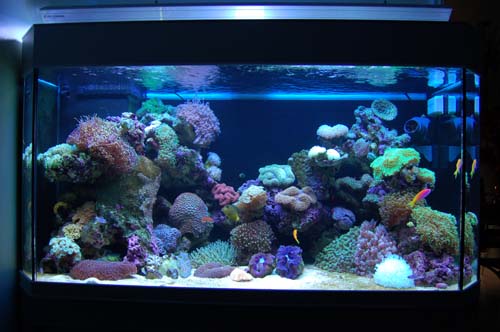

This heats up your tank and promotes algae growth better than any artificial light. Keep your tank in a spot where there isn’t constant exposure to sunlight. You can either opt for lighting that is less intense or reduce the number of bulbs in your tank. Keeping in mind the factors that promote algae, you can do the following to limit an algae outbreak in your tank. However, if you opt for a plant that thrives in a darker environment, LEDs are a smart choice. They are not ideal for plants that require high-intensity light exposure. In this case, LED lights may not be a preferable option. If you have live aquarium plants in your tank, you might want to opt for lights that create a suitable environment for them to thrive. Are LED Lights Suitable for Aquarium Plants? A dirty tank leaves excess matter that algae can use to grow. You can avoid putting too much feed in the tank-if your fish have a tendency to leave some pellets-they’ll eventually be used to promote algae.Īlong with avoiding overfeeding, make sure you clean your tank as often as it is required. Keeping the light on for too long, setting up your aquarium by a window where there is constant exposure to sunlight, or having lights that are extremely bright all-cause algae growth. However, you do have the light intensity in your control. It’s obviously not possible to limit the amount of water in your tank, nor can you reduce the nutrients that you use to feed the fish. Whenever there is too much of any of the four, it can lead to algae. What Causes Algae Growth?Īlgae growth is caused by a mixture of CO2, light, water, and fertilizer. If you opt for a 30w LED light, it will have a much smaller chance of causing LED than, say, a fluorescent light because fluorescent lights don’t have the option of higher and lower intensities.Īdditionally, fluorescent lights degrade over time, and if you have a larger tank, you may notice that an area where the light is newer has traces of algae growth whereas the areas where the light has begun to dim wouldn’t. You can even get a dimmer color, such as blue, to reduce the chances that a white LED light may have of causing algae (even though they are already very slim). LED lights can be modified to give off a duller light.
#Fish tank aquarium black light full
They’re also not full spectrum.įull-spectrum lights try to resemble daylight-and the longer you have them on, the more likely it is for algae to break out. This applies across the board: Whether you use metal halide, LED, or fluorescent lights.Īn interesting aspect of LED lights is that they have a lower intensity than other lights. If you have your aquarium lights on for 8 to 12 hours a day, there is a high chance that you’ll encourage algae growth. What really causes an algae outbreak in your tank is the intensity of the light, as well as how many hours in the day you keep the light switched on. In fact, some fish owners will say that LED lights are the least likely to encourage algae growth. What Can You Do to Prevent Algae Growth?ĭo LED Lights Cause Algae Growth in Aquarium?Īs we’ve mentioned before, algae growth doesn’t depend on what kind of light you’re using.Are LED Lights Suitable for Aquarium Plants?.Do LED Lights Cause Algae Growth in Aquarium?.Here are some other things you need to know about algae and LED lights before you decide which tank light will work best for you. This also discourages algae growth more than anything else-because it’s not the kind of light that causes algae growth, but the intensity of it. This means that fish are also more comfortable with LEDs because, according to their preferences, they can have a dim light without having to shut the light off-which makes it easier for you to keep an eye on your fish. Some LED lights also have adjustable light options to dim or brighten the light according to your fish’s needs. LED lights have quickly overtaken other kinds of aquarium lights in popularity because they have a longer life than fluorescent and metal halides.īesides their longer life, they also consume less energy, have several different color options, and do not heat up your tank’s water as much as other aquarium lights.Ĭontrary to what you may have been told, LED lights do not cause algae growth any more than other aquarium lighting options.


 0 kommentar(er)
0 kommentar(er)
